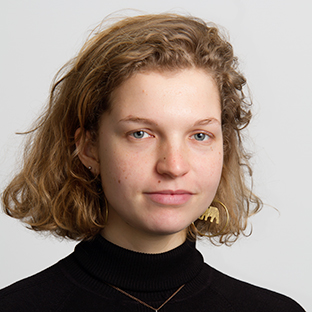The future of the NHS may hang on the principle of co-production. Only by involving citizens directly and actively in caring for themselves and each other, can we be sure of a viable healthcare system in the medium and longer term.
Since this week is National Co-production Week, organised by the Social Care Institute for Excellence, it’s an opportunity to celebrate and spread the word about the vital importance of this approach.
Co-production is not about professionals dumping responsibility for health on sick and vulnerable people. It’s about professionals and citizens sharing power and working together to design, plan and deliver activities and services that keep people healthy and care for them when they need help. It's about recognising that everyone has an important contribution to make, and acknowledging the role of these contributions in improving quality of life for people and communities. Above all, co-production is about valuing and utilising the expertise, time and resources of citizens, equally alongside professionals.
It is for all these reasons that co-production is integral to Health as a Social Movement - the programme that aims to explore how community-centred approaches to improving health and wellbeing can be embedded across the health system. Co-production offers a means by which communities can be engaged, power can be shared, and people can have more control over the decisions that affect their lives.
Over recent decades, co-production has become steadily more widespread in the public and voluntary sectors in the United Kingdom and across the world.
For example, the Lambeth Living Well Collaborative, established in 2010, has adopted a co-produced approach to radically improve the outcomes experienced by people with severe and enduring mental health problems. The Collaborative is made up of people who use services, carers, commissioners across NHS Lambeth Clinical Commissioning Group and Lambeth Council, voluntary and community sector, secondary care and primary care. Peer supporters, service users and their advocates are involved in the Collaborative in co-designing new services and reviewing existing provision.
In 2013, the Collaborative set up the Peer Innovation Fund, a fund designed to support peer support initiatives in the borough. Since then, a number of initiatives have been developed, including Project Dare, a group intervention that challenges stereotypes of women’s body image, increases self-esteem and teaches self-compassion whilst celebrating the body and having fun. Sessions are planned and facilitated by someone who has experience of mental ill-health.
We see further evidence of the potential of co-production to build, strengthen and empower communities in another co-produced initiative, KeyRing. This is a supported living service for vulnerable adults, with 899 members in over 105 networks nationally. The approach is to set up a series of local networks, of which each has nine adult members and one volunteer (the navigator), all living independently, usually within a 10-15 minute walk of each other. The networks provide mutual support for independent living and link people into other local networks and resources. Through these peer-support networks people are supported to live in their own homes while sharing their skills and talents with each other and their communities.
By involving people with lived-experience in all stages of the commissioning and delivery process, co-production recognises people’s strengths and assets, not simply their needs. It offers an opportunity for individuals and groups to grow their confidence and capabilities, and to develop and strengthen social networks.
The underlying principle of co-production is that people’s needs and aspirations are better met when they are involved in an equal and reciprocal relationship with professionals and others, working together to get things done. Co-production can be used to collaboratively to keep people healthy and stop NHS budgets being wasted on avoidable illness.
Find out more about Health as a Social Movement
Madeline Ellis Peterson is Assistant Researcher at the New Economics Foundation – project partner of Health as a social movement with the RSA.
Related articles
-
A social justice cause for the 2020s – reining in health spending
Anthony Painter
Anthony Painter argues that the state expansionists will win over small statists as healthcare expenditure is destined to increase. But their victory may be a Pyrrhic one unless the growth can be limited so better support can also be given to housing, economic security, education and lifelong learning.
-
Did Bevan's bedpan test set the NHS on the wrong track?
Ed Cox
Ed Cox, Director of Public Services and Communities, argues that the NHS needs a more devolved approach in the decade ahead.
-
8 principles for future health and care systems
Tom Harrison
The RSA and NEF in partnership with NHS England publish eight principles to develop a community-led health system.




Be the first to write a comment
Comments
Please login to post a comment or reply
Don't have an account? Click here to register.